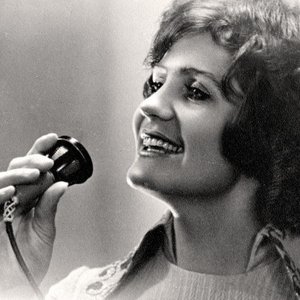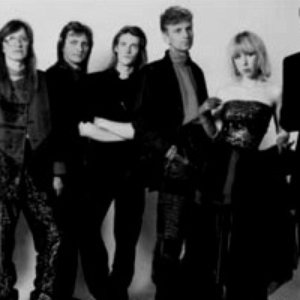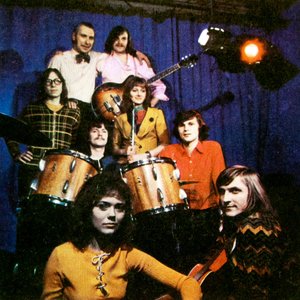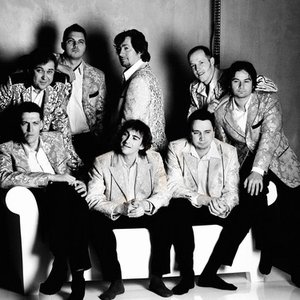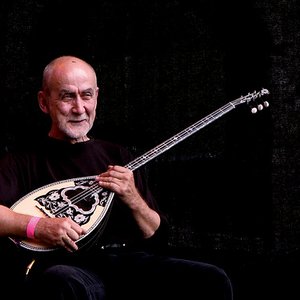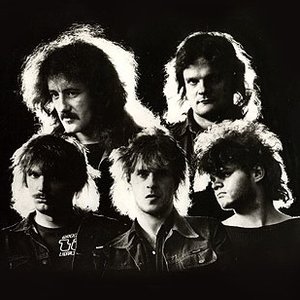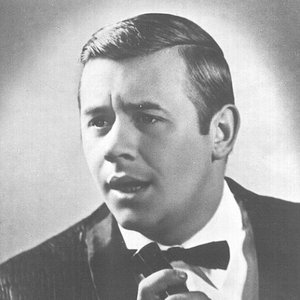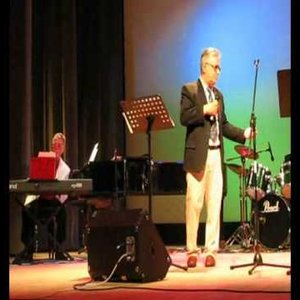Biography
-
Years Active
1966 – present (59 years)
-
Members
- Aldis Strazdiņš
- Aleksandrs Sircovs
- Andris Resnis
- Andris Riekstiņš
- Boriss Rezņiks (1966 – present)
Eolika is a pop group which was formed in Latvia during 1966. The group has had many differing lineups since 1966, the most popular of which consisted of Olga Rajecka, Ilona Stepanova (replaced by Ligita Zeile in 1981), Dainis Dobelnieks and Viktors Zemgals during the early 1980's. From 1972 to 1992, its leader was Boriss Rezniks.
The name of the band is derived from Aeolus - the ruler of the winds in ancient Greek mythology, which is why in a newspaper article the band members were called "children of the god of the winds". It was formed by students of the E. Dārziņš Music High School, who initially played foreign songs in English, for example, " The Beach Boys " polyphonic songs. The band's first line-up included Boriss Rezņiks (vocals, keyboards ), Zigismunds Lorencs (vocals, guitar), Juris Griņevs (vocals , guitar ), Jurijs Kuzminovs (vocals, bass guitar ) and Eduards Novikovs (vocals, drums ). Later, drums were played by Einārs Raibais (whom in early 1969, moved to the band "Katedrāle" ) and Vladimirs Plotkins.
During the early months of 1967, Raimonds Pauls invited the group to participate in the concerts of the Rīga Variety Orchestra, the group, together with the orchestra, went on tour around the Soviet Union. The original songs of the group members were created, the repertoire also included a few songs by R. Pauls. In February 1968, the group won first place in the All-Union vocal-instrumental ensemble competition "Big-bit-'68" in Kyiv.
In 1968, the group collaborated with the Rīgas Modeļu Namu (English translation: Rīga Model House), accompanying fashion show demonstrations. The magazine "Zvaigzne" wrote about this collaboration: "A real find for the Rīgas Modeļu Namu is the laureate of the All-Union Jazz Competition "Big-bit-68" - the vocal-instrumental ensemble "Eolika". It includes a gifted musician, laureate of the International Tallinn and All-Union Moscow Jazz Festivals, and percussion virtuoso Einars Raibais. The folk from the ensemble performed a whole series of successful improvisations on Bach themes, playing accompaniment to models created according to solemn medieval motifs. The rhythms of African jungle melodies were dedicated to model demonstrations for hot summer days, smooth joyful beats to children's model demonstrations, and jazz improvisations on themes by composers of the 17th and 18th centuries, when romantic-style costumes were demonstrated, the creation of which the artists were guided by Rembrandt's motifs."
The press of the time wrote: ""The repertoire of "Eolika" is diverse - both old Russian folk songs and compositions by Russian classics, as well as political pamphlets, compositions by composers from Soviet and democratic countries." The repertoire also includes Z. Lorents' song against the Vietnam War with lyrics by N. Matveyeva "Скоро начнут прибывать домой гробы". The group recorded accompaniments for songs by Ģ. Ramans for the performance of H. Gulbys' play "Aijā, žūžū, bērns kā lācis" at the National Theatre (1968), as well as music for Valdis Kroģis' documentary film "Re, kur Ro!" (1969).
When the musicians began studying at the Latvian State Conservatory , they were forced to stop collaborating with REO and become party musicians again. During this time, two EPs (small records) were recorded - one of them contained songs by composer Aleksandrs Kublinskis , and the other contained songs by the band members themselves, as well as one song by R. Pauls, which the band recorded together with Nora Bumbiere . The instrumental R. Pauls composition "Melodija no kinofilmas 235 mlnīci seju" recorded by "Eolika" was included in R. Pauls' first pop song album " Tev, mana labā " (1969).
In 1970, Z. Lorenc's "Vecāmāte un runcis" (Grandmother and the Cat) took fourth place in the "Mikrofon" poll . Performed by the nineteen-year-old author, this song gained great popularity for a long time within Latvia, and other neighboring Soviet states.
The composition "Varam sintēt visu bez riska" (We can synthesize everything without risk) composed by Z. Lorencs was included in the concert film " Muzikalāis kokteilis " (Musical Cocktail) in 1968. After one of the band's appearances on TV, playing liberated big beat , a feuilleton in the newspaper " Cīņa " followed, which ridiculed the band's style. The band's activities came to an end in 1970, when the members of "Eolika" had to go to serve in the Soviet Army .
Artist descriptions on Last.fm are editable by everyone. Feel free to contribute!
All user-contributed text on this page is available under the Creative Commons Attribution-ShareAlike License; additional terms may apply.

